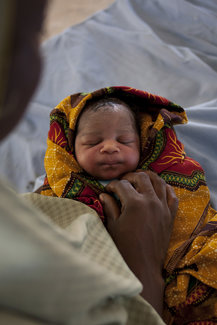

Displaying 381 - 390 of 634
Written from the perspective of someone who grew up as a so-called “AIDS orphan” in Africa, this opinion piece from Al Jazeera describes how Western media has tended to portray orphaned children with pity, rather than with dignity.
This study examines the sources and kinds of support as well as the barriers to social support for a group of care leavers from a children's village in Ghana.
A staff member at a British-run orphanage in Freetown, Sierra Leone has been diagnosed with Ebola, sending over 20 children who resided in the orphanage into quarantine due to their exposure to the virus, according to the article.
The government of Ghana has approved four memoranda on children for the Ministry of Gender, Children and Social Protection, including approval of the Hague Convention on Intercountry Adoption, approval of Child and Family Welfare Policy and approval for the Optional Protocol to the Convention on the Rights of the Child, on the Sale of Children, Child Prostitution and Child Pornography.
This article from Al Jazeera America shares the story of Rose Wakulu, a young Nigerian woman placed in a state-run camp for internally displaced people with her daughter and nephews after her village was attacked by Boko Haram fighters.
Investigative journalist Anas Aremeyaw Anas went undercover at an orphanage in Ghana to expose abuses and corruption. This video documents his experience.
This country care review includes the care-related Concluding Observations adopted by the Committee on the Rights of the Child as part of its examination of the combined second and third periodic reports of The Gambia (CRC/C/GAM/2-3).
Ghanaian undercover investigative journalist, Anas Aremeyaw Anas, and his team posed as volunteers at a children’s home in Awutu Bawjiase in the Central Region of Ghana and uncovered abuses and corruption occurring in the orphanage. The abuses have been reported to the Ministry of Gender, Children and Social Protection and the home as been shut down.
“OAfrica condemns the criminal abuse Anas has revealed at Bawjiase Orphanage and calls for the complete eradication of orphanages in the country by 2020.”
This paper combines data on the age distribution of current and projected mortality from Ebola with the fertility distribution of adults in Guinea, Liberia, and Sierra Leone, to estimate the likely impact of the epidemic on the number of orphans in these three countries.

